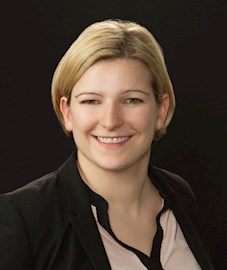What US Lawyers Should Know About Litigating in England and Wales
Solicitors and barristers. The legal profession in England and Wales is divided into solicitors and barristers. Both are lawyers, but will usually play different roles in litigation. Solicitors advise clients and have conduct of cases. Barristers (also called Counsel) are instructed by solicitors and generally act as specialist advocates in court, as well as work with the solicitors to formulate the case strategy. Some solicitors, known as Solicitor- Advocates, also have the same rights of audience before the Courts in England & Wales to act as advocates.
Disclosure. Disclosure (discovery) rights and obligations are less extensive in the UK than in the US. There is an obligation to disclose and make available for inspection only relevant non-privileged documents. Standard disclosure requires a party to disclose all documents on which it may rely, or which adversely affect its case (or the other party's case), or which support the other party's case. A party need only disclose documents within its control. If disclosure includes non-relevant documents, the court is likely to require it be cut down. 'Train of enquiry' documents do not generally form part of standard disclosure, but a party may request specific disclosure of documents. As part of recent court reforms (the "Jackson reforms") litigants are encouraged to reduce the volume of disclosure where possible, in order to keep costs down.
Evidence. Witness statements are written statements of fact, signed by the witness and confirmed by a statement of truth. They are used to set out evidence to be led at trial and should be detailed. Witness statements are exchanged by the parties some time prior to the trial. It is only possible to call a witness at trial if they have first made a witness statement. Coaching a witness on his/her evidence for trial is not allowed. There are no depositions, so the first opportunity to cross-examine a witness is at trial. Generally at trial evidence in chief is taken as read as it is contained in the statement of the witness, so unless there are corrections, a witness will be taken straight into cross-examination.
Expert witnesses. The court's permission is required to call an expert witness. Experts are instructed by lawyers, thus it is rare to find an expert who does not support the case. However, experts have an independent duty to the Court. Experts do not generally have to disclose all communications with the lawyers who are instructing them, only their instructions and final report. The court has the power to direct that parties use a single joint expert, and this is increasing as a result of the Jackson reforms.
Privilege. The definition of 'client' is narrower in England & Wales than in the US. When communicating with a lawyer, some of a company's employees may not benefit from privilege. The availability of privilege during an internal investigationcan vary significantly from case to case and may depend on a careful analysis of the relevant circumstances. Finally, the advice of in-house lawyers does not receive the same degree of protection from disclosure in England & Wales as in the US. Following a ruling by the Court of Justice of the European Union, there is no legal privilege for in-house lawyers in respect of European Commission investigations into anti-competitive practices.
Costs. This includes lawyer fees and court fees. The general rule is the loser pays the winner's costs, but the court has wide discretion. The court will consider factors including how the party conducted the litigation and their level of success. It is possible to make offers before or during litigation which increase the amount of costs which may be recovered or the level of interest paid on costs or the award of damages if they are not met. Generally, a winning party will recover around 60-70% of its costs.
Jurisdiction. There is no such thing as UK law. The main legal system is the law of England & Wales. The laws of Scotland and Northern Ireland are separate legal systems. The law of England & Wales should be specified in any contract as the applicable law if that is what is wanted; specifying UK law may, at minimum, cause a failure in the choice of law clause, resulting in the contract being governed by a wholly different law arrived at by conflict of law principles.
The courts and appeals. For most medium sized and above commercial cases, there are three tiers of Court in England & Wales. The High Court is the Court of first instance. The largest High Court centre is in London but there are High Courts which are present in most major commercial centres in England & Wales. Apart from the tort of defamation and one or two other very limited circumstances where there are juries, civil cases are always tried by a High Court Judge alone. An appeal from the decision of a High Court Judge will lie to the Court of Appeal (which will consist of a panel of three judges sitting only in London) but only with permission either of the Judge who tried the case or of the Court of Appeal.
UK Supreme Court. Appeals from the Court of Appeal for England & Wales are heard by the Supreme Court, (which also acts as the ultimate appellate body for Scotland and Northern Ireland). It is usually a panel of five Supreme Court Justices, but occasionally seven or even nine Justices will sit.
Please contact Laurence Harris – lharris@cooley.com +44 (0)20 7556 4445 or Sascha Grimm – sgrimm@cooley.com +44 (0)20 7556 4165 if you require further assistance.
This content is provided for general informational purposes only, and your access or use of the content does not create an attorney-client relationship between you or your organization and Cooley LLP, Cooley (UK) LLP, or any other affiliated practice or entity (collectively referred to as "Cooley"). By accessing this content, you agree that the information provided does not constitute legal or other professional advice. This content is not a substitute for obtaining legal advice from a qualified attorney licensed in your jurisdiction, and you should not act or refrain from acting based on this content. This content may be changed without notice. It is not guaranteed to be complete, correct or up to date, and it may not reflect the most current legal developments. Prior results do not guarantee a similar outcome. Do not send any confidential information to Cooley, as we do not have any duty to keep any information you provide to us confidential. When advising companies, our attorney-client relationship is with the company, not with any individual. This content may have been generated with the assistance of artificial intelligence (Al) in accordance with our Al Principles, may be considered Attorney Advertising and is subject to our legal notices.

